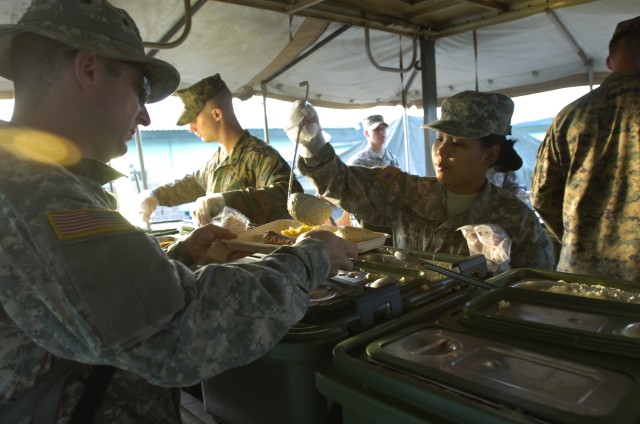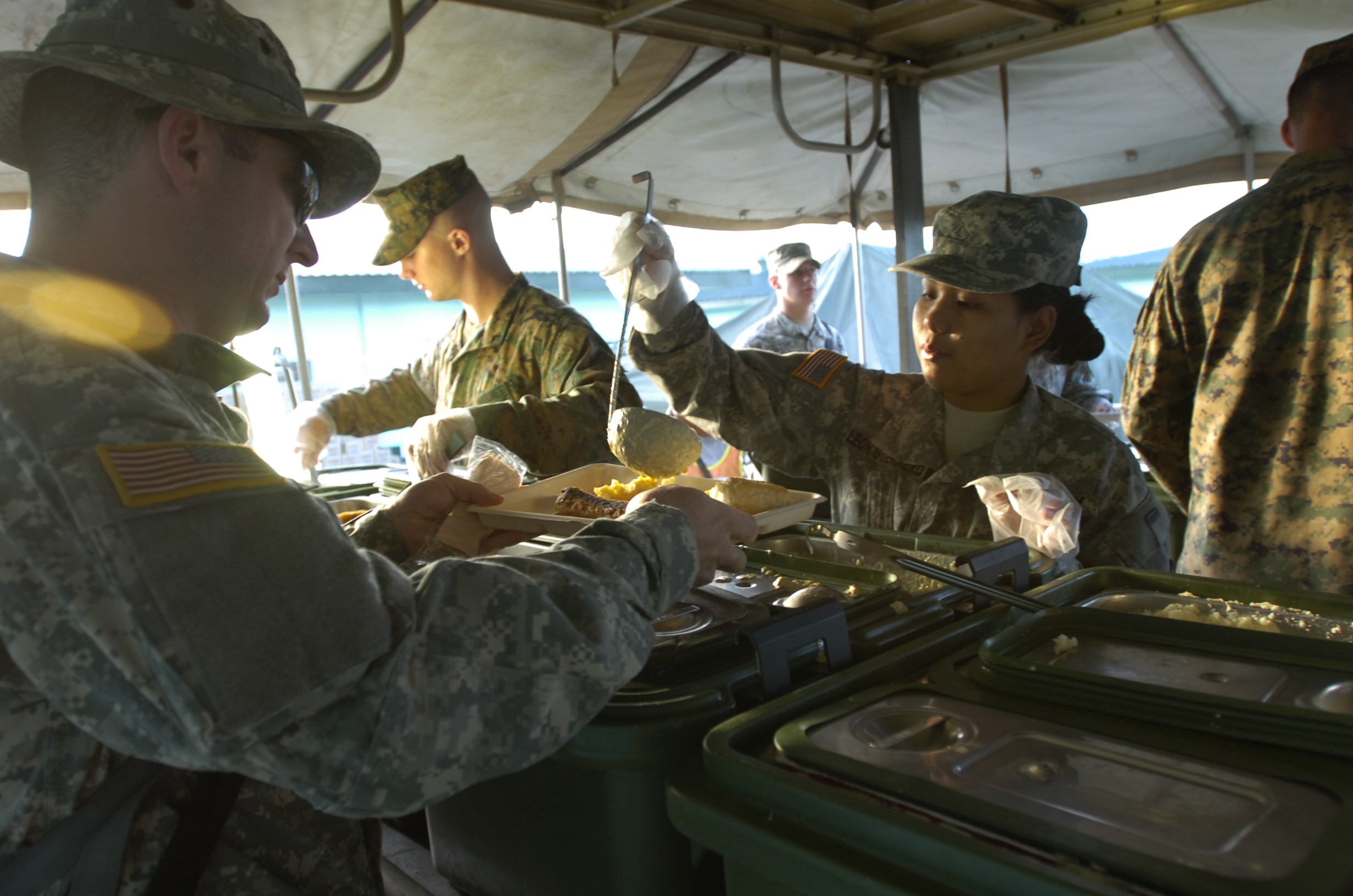
FORT MAGSAYSAY, Philippines -- Joint service food specialists prepare meals every day for U.S. servicemembers attending exercise Balikatan 2011 April 5-15 in the Philippines.
It takes an early morning and about three hours to prepare the food if there are no dilemmas, such as malfunctioning stove burners or other equipment failures, said U.S. Army Staff Sgt. Dwane K. Bunbury, senior food operating sergeant for Delta 302nd, 4th Squadron, 7th Cavalry Regiment, 2nd Infantry Division, South Korea.
"With active Army, Marines and Guam National Guard we now have a total of 15 cooks serving approximately 700 personnel," said Bunbury.
"I usually wake up around zero-one-forty-five (1:45 a.m.) to make sure everything is running properly before the troops start to line up," said Bunbury an Orlando, Fla. native.
Troops operating the mobile kitchen trailer begin the day by starting the burners and heating water to pre-heat the food insulation containers. Once finished, they begin cooking the food for the breakfast meal. They go through the same process for the dinner meal.
After the food is finished cooking, troops properly sanitize the mobile kitchen trailer and prepare for hungry troops to arrive for their meals, said Bunbury.
"After that, I supervise the troops, make sure we don't run out of food and ensure that the troops get hot meals," he said.
When the cooks of the Delta 302, 4-7th Cavalry, first arrived for Balikatan, there were only eight Soldiers running the mobile kitchen trailer, serving about 600 people, said U.S. Army Pfc. Jasmine J. Weathersby, a food service specialist with Delta 302, 4-7th Cavalry. A few days later, U.S. Marines arrived, followed by the Guam National Guard.
"At first, working with the Marines was difficult," said Weathersby, a Houston native. "We are all in the military, but it is a totally different world."
Marines brought cooking equipment unfamiliar to Army food specialists, and the Marines were unfamiliar with the Army's equipment.
"When I had questions," said Weathersby, "(the Marines) were willing to teach me how to use their equipment. They brought a different type of burner (than what) we were used to and a tray ration heater system, which looks like a mini freezer and boils large quantities of water in very little time."
"I taught the Soldiers how to use our equipment, such as M2 burners and a field range, which is a device we put the M2 burner into to cook food," said U.S. Marine Lance Cpl. Brandon Barnes, a food service specialist attached to the Combat Logistics Battalion 4, Okinawa, Japan.
The humidity has made the cooks' job hotter than it already is, said Weathersby. "We had a Soldier become dehydrated while cooking, because we are around burners the majority of the time, and the humidity has just made the heat worse," she said.
Although excessive heat can present an issue at times, it does not stand in the way of doing the job, said Barnes, a Sacramento, Calif., native.
"We learn to adapt," he said.
It's beneficial for U.S. servicemembers from different branches to work together, said Bunbury. He believes the minor hiccups still make for good training.

Social Sharing